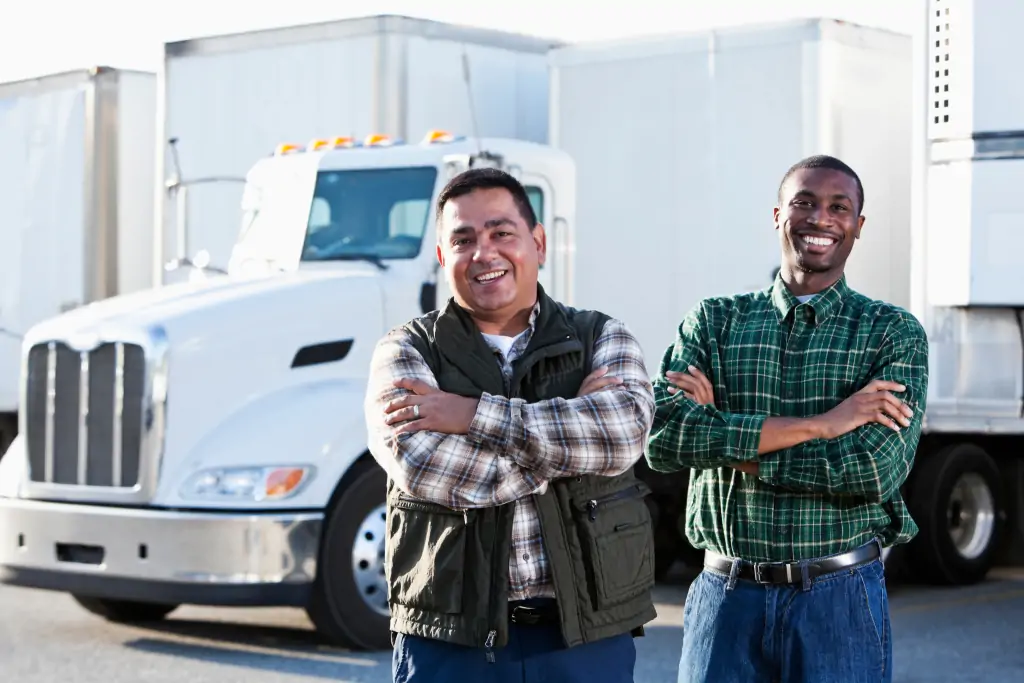Combating Loneliness on the Road: Tips for Social Connection as a Truck Driver

The life of a truck driver is one of perpetual motion — a seemingly endless stream of diesel engines and open roads that carry the backbone of our economy. It’s a profession that, for all its robustness, can often be a solitary one. The long hours, vast distances, and nights spent in the cab can lead to a sense of isolation that weighs heavy on the minds and hearts of many truckers.
Despite the romanticized images of the open road and the freedom it represents, the stark reality for many is the challenge of combating a silent, yet pervasive foe: loneliness. In this guide, we’ll explore practical strategies for maintaining social connections, fostering new friendships, and prioritizing mental well-being for those with a life spent largely on the move.
UNDERSTANDING TRUCK DRIVER LONELINESS
THE IMPACT ON MENTAL HEALTH AND JOB SATISFACTION
The implications of loneliness are no less profound. Research has consistently linked feelings of isolation to higher incidences of depression, anxiety, and stress. Additionally, the lack of social connection can significantly impact job satisfaction, productivity, and even safety on the road.STRATEGIES FOR MAKING FRIENDS AND BUILDING RELATIONSHIPS
Truck drivers have a unique opportunity to meet a wide array of individuals during their travels. Leveraging this, here are several strategies to foster new friendships and build relationships.
PRACTICAL TIPS FOR CONNECTING WITH FELLOW DRIVERS ON THE ROAD
COMMUNICATE AT REST STOPS AND DINERS
Engage in conversation with other drivers at rest stops and diners. A simple “hello” can often lead to a more meaningful interaction, offering a temporary reprieve from the solitude of the road.OFFER HELP AND SHARE EXPERIENCES
Act altruistically and be open to sharing your knowledge or experience with others. Helping fellow drivers or sharing a particularly challenging stretch of road can be a uniting experience.UTILIZING TECHNOLOGY AND ONLINE COMMUNITIES
SOCIAL MEDIA AND FORUMS
Join social media groups and online forums dedicated to trucking. These virtual spaces can offer a sense of community — even from a distance — and act as a repository for shared experiences and advice.PODCASTS AND VIRTUAL MEETINGS
Attend or participate in trucking-related podcasts and virtual meetups. The interconnectedness facilitated by technology can bridge the geographical divide and create social connections that transcend the open road.MAINTAINING RELATIONSHIPS WHILE TRUCK DRIVING
The most enduring relationships for a truck driver are those with family and friends back home. Nurturing these connections requires intentional effort and consideration.
ADVICE ON COMMUNICATION WITH FAMILY AND FRIENDS
REGULAR CHECK-INS
Establish a routine for regular check-ins with loved ones. This could be a nightly phone call, video chat, or a set time for messaging.SHARE YOUR JOURNEY
Involve your family in your travels by sharing photos and stories. This not only helps maintain a connection but also allows your loved ones to share in your unique experiences.MANAGING EXPECTATIONS AND FINDING A HEALTHY BALANCE
BE TRANSPARENT ABOUT YOUR TIME ON THE ROAD
Explain the realities of your job to your family and manage expectations about your availability. Honesty about the challenges you face can lead to a better understanding and support system.BALANCING WORK AND PERSONAL TIME
Set boundaries between work and personal time. Allocate dedicated times during the day for social interaction and stick to them as closely as possible.PRIORITIZING MENTAL HEALTH ON THE ROAD
Recognizing the signs of loneliness and taking proactive steps to care for mental health are vital for a truck driver’s overall well-being.
RECOGNIZING SIGNS OF LONELINESS AND DEPRESSION
BE KNOW THE SIGNS
Be aware of common signs of loneliness and depression, such as feelings of emptiness, disinterest in activities, and changes in sleep patterns.SEEKING PROFESSIONAL HELP
Do not hesitate to seek professional help if feelings of loneliness or depression persist. Many organizations offer mental health services tailored to the unique needs of truck drivers.SELF-CARE TIPS AND RESOURCES FOR MENTAL WELL-BEING
ENGAGE IN REGULAR PHYSICAL ACTIVITY
Find time for daily exercise, even if it’s just a short walk during a rest stop. Physical activity has been shown to improve overall mental health and combat feelings of loneliness.PRACTICE MINDFULNESS AND RELAXATION TECHNIQUES
Incorporate mindfulness and relaxation techniques into your daily routine. Simple practices like deep breathing exercises or meditation can center your mind and alleviate stress.CONCLUSION
- Back
